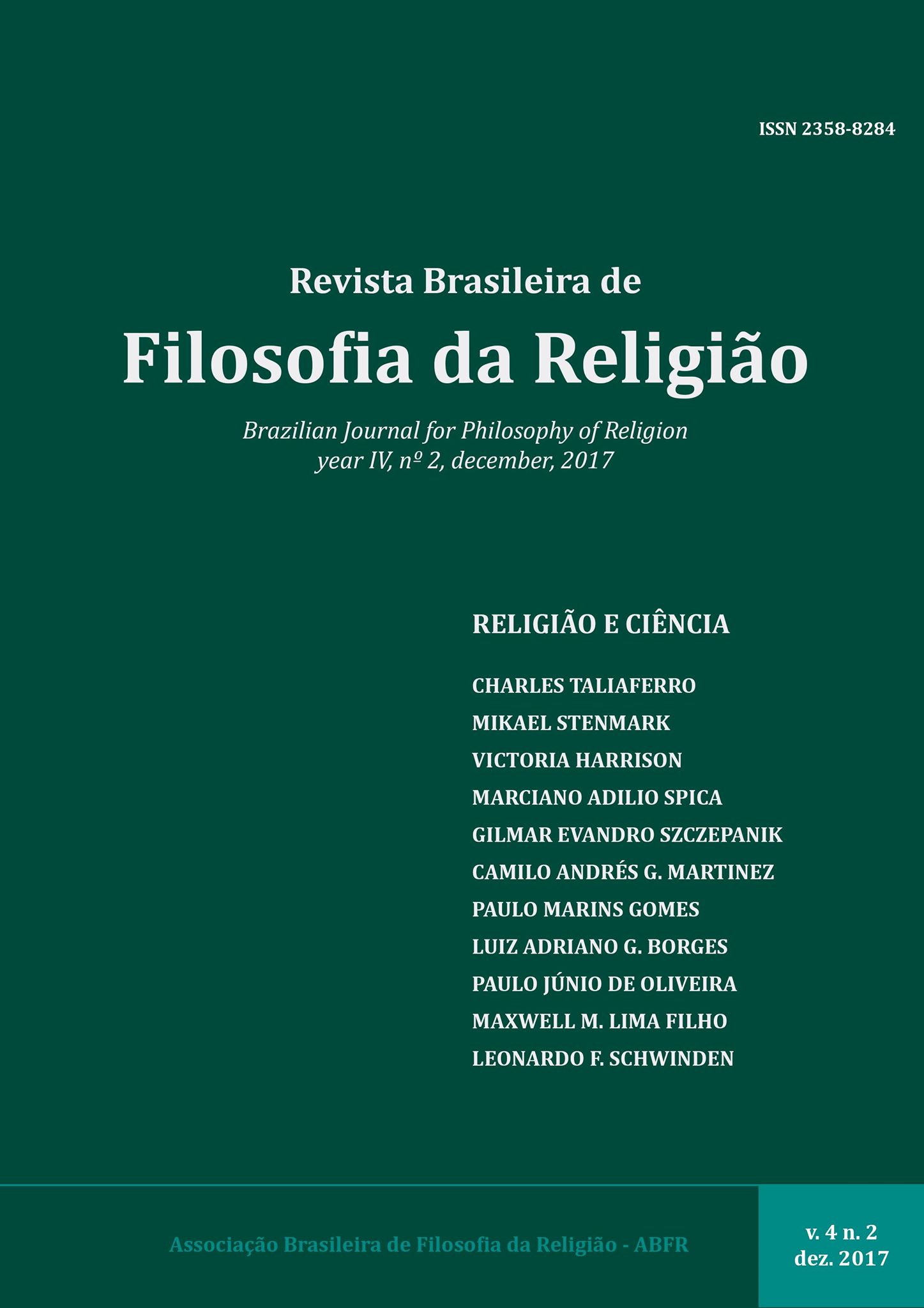SCIENCE, TECHNOLOGY AND CHRISTIANISM IN C. S. LEWIS WORK
DOI:
https://doi.org/10.26512/2358-82842017e11193Keywords:
C. S. Lewis, Science, Technology, World Wars, ChristianityAbstract
C. Lewis (1898 - 1963) lived in a very complicated time from the geopolitical point of view (two World Wars), but also very dynamic when it comes to science and technology. What this article will explore is precisely the vision of technology and science and the vision of Christianity from the writings of Lewis, especially in his works "The Abolition of Man" and "Cosmic Trilogy", as well as letters and resonances in other works. Promises regarding progress made through the advancement of science and technology have come to be seen as false after two world wars. During the first half of the twentieth century, several intellectuals wrote fictions pointing to a negative view of the future, making this literary genre the favorite to make heavy - and creative - social criticism. Lewis's main criticism centered on the idea that blind faith in science and technology would lead to the abolition of man, of human nature itself.
Downloads
References
ALEXANDER, Jeffrey C. Theoretical logic in sociology. 1: Positivism, presuppositions, and current controversies. 1. paperback print ed. Berkeley: Univ. of California Press, 1985.
BARBOUR, Ian G. Ethics in an age of technology. 1st ed ed. San Francisco, Calif.: HarperSanFrancisco, 1993. (The Gifford lectures, v. 2, 1989-1991).
BARRETT, William. Irrational man: a study in existential philosophy. New York: Anchor Books, Doubleday, 1990.
BUNGE, Mario. Etica, ciencia y técnica. 1. ed., corr. y aum ed. Buenos Aires: Sudamericana, 1996.
BURY, J. B. Idea of progress: an inquiry into its origin and growth. Place of publication not identified: Read Books, 2011.
CLARK, Christopher M; VARGAS, Berilo; MOTTA, Laura Teixeira. Os sonâmbulos: como eclodiu a primeira guerra mundial. S.l.: s.n., 2014.
CLARKE, Arthur C. 3001: the final odyssey. New York: RosettaBooks, LLC, 2012. Disponível em: <http://public.eblib.com/choice/publicfullrecord.aspx?p=3031763>. Acesso em: 27 jul. 2017.
CLOUSER, Roy A. The myth of religious neutrality: an essay on the hidden role of religious belief in theories. Rev. ed ed. Notre Dame, Ind: University of Notre Dame Press, 2005.
COLE-TURNER, Ronald (Org.). Transhumanism and transcendence: Christian hope in an age of technological enhancement. Washington, D.C: Georgetown University Press, 2011.
COMO, James T. (Org.). Remembering C.S. Lewis: recollections of those who knew him. 3rd ed ed. San Francisco: Ignatius Press, 2005.
DAWSON, Christopher. Progresso e religião. 1. ed. São Paulo: É realizações, 2012.
DEMY, Timothy James. Technology, progress, and the human condition in the life and thought of c. S. Lewis. 2004. Salve Regina, Newport, 2004.
DOOYEWEERD, Herman. No crepúsculo do pensamento ocidental. São Paulo: Hagnos, 2010.
DURIEZ, Colin. The A-Z of C S Lewis: a complete guide to his life, thought and writings. [S.l: s.n.], 2013.
FENNEL, Jon. A Polanyian Perspective on C.S. Lewis’s The Abolition of Man. The Journal of Inklings studies, v. 4, n. 1, p. 93”“122, abril 2014.
FULLER, Steve. Knowledge: the philosophical quest in history. First published ed. London New York: Routledge, 2015.
FULLER, Steve. Kuhn vs. Popper: the struggle for the soul of science. New York: Columbia University Press, 2004. (Revolutions in science).
GEHLEN, Arnold; PANSERA, Maria Teresa. L’uomo nell’era della tecnica: Problemi socio-psicologici della civiltà industriale. Roma: Armando, 2003.
HALDANE, J. B. S. EVERYTHING HAS A HISTORY. Place of publication not identified: ROUTLEDGE, 2017.
HOBSBAWM, E. J. A era dos impérios: 1875-1914. São Paulo (SP): Paz e Terra, 2010.

